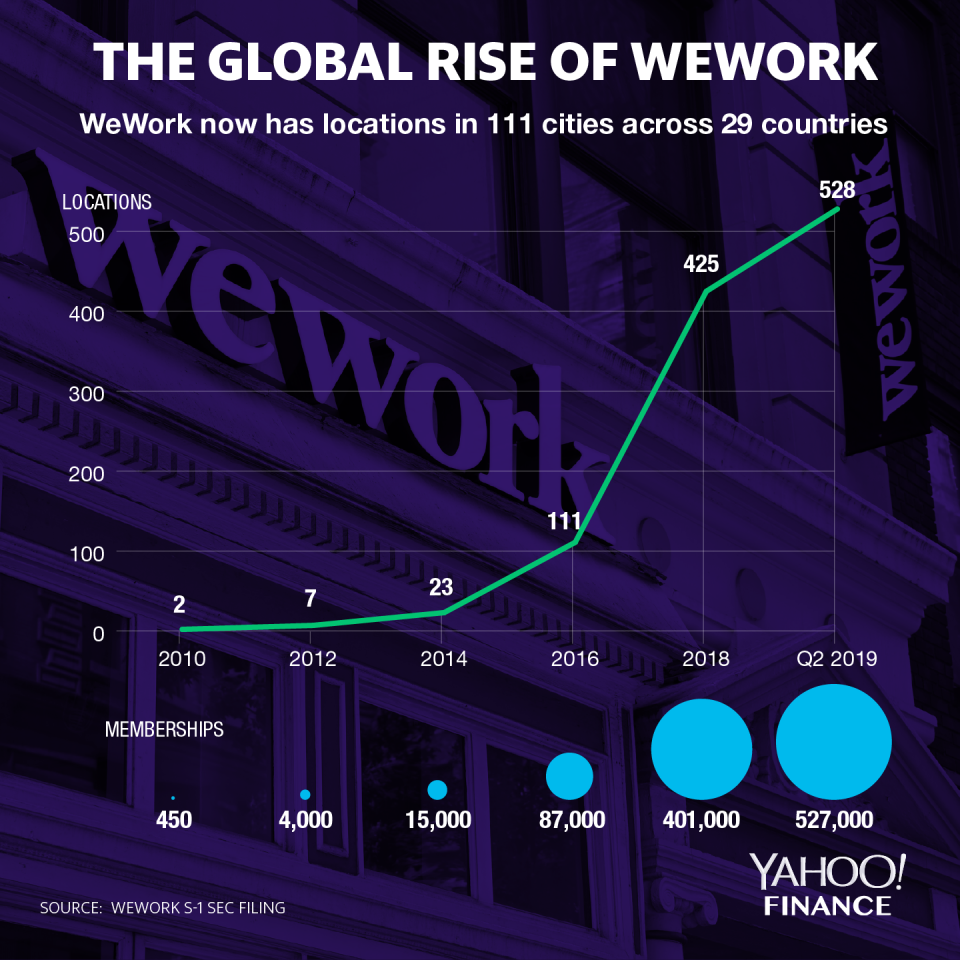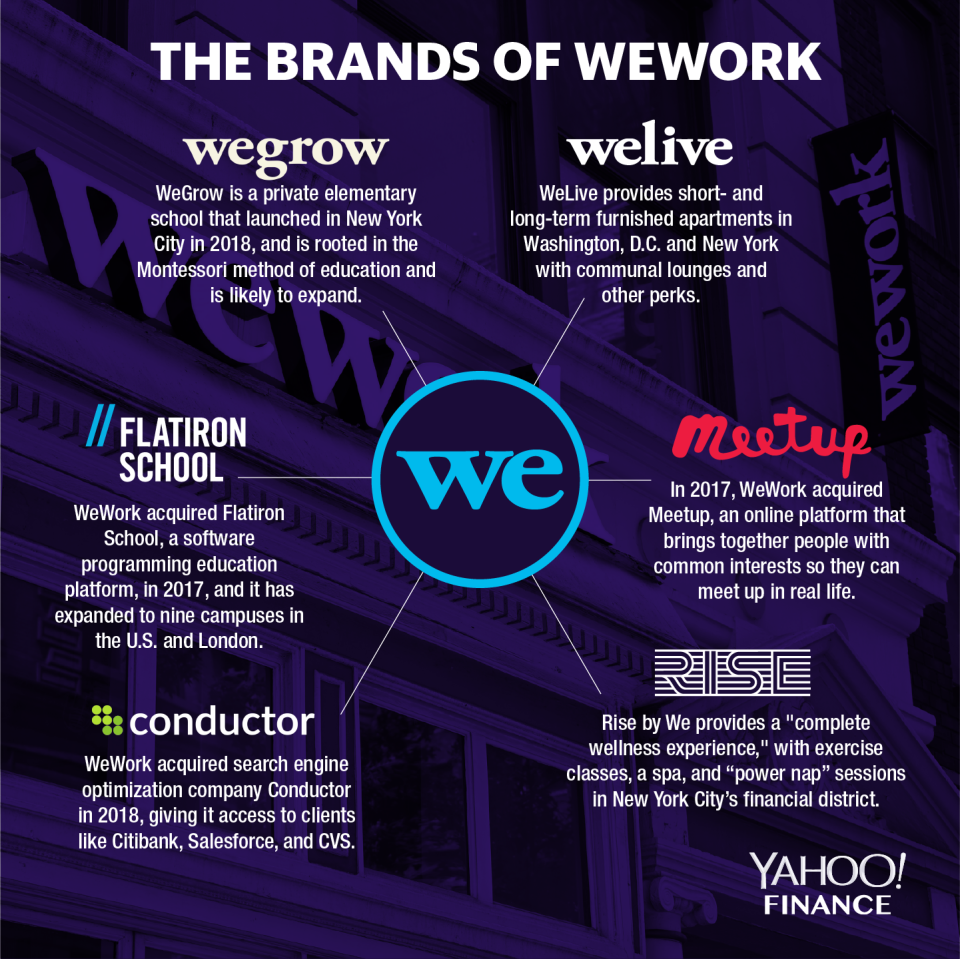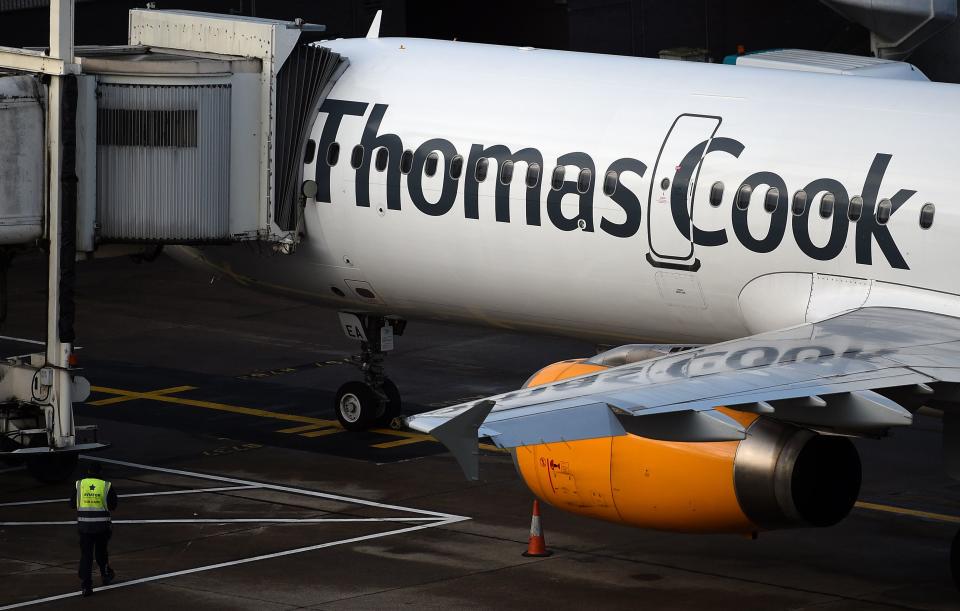Not everybody hates WeWork: Morning Brief
Monday, September 23, 2019
Get the Morning Brief sent directly to your inbox every Monday to Friday by 6:30 a.m. ET. Subscribe
What makes WeWork’s business bad is what makes it great
News only seems to be getting worse for The We Company, parent of WeWork, and its investors. In just the past week, news broke that the company was delaying its IPO and that top investors were looking to push out its co-founder and CEO Adam Neumann. Some might wonder: why does WeWork exist at all? The short answer: businesses love it!
For a little bit of money, The We Company will set you up with a cool desk, a cool office, or even a cool headquarters with “custom art and furniture designed for creativity, comfort, and productivity,” and all of the necessary comforts of the working creature like “fresh fruit water, micro-roasted coffee, and tea.”

It’s great for the small business that doesn’t have the time or money to build that office from scratch, and it’s great for the large business that needs a little bit of extra space for a short burst of time.
Over time, it probably makes economic sense to set up your own office. But for a small premium, WeWork will give your business a whole lot of flexibility right now.
To put it another way, WeWork will assume a lot of risk for you.
And that’s what makes the short-term, shared-office space business so risky.
“We is highly susceptible to a recession, as the company signs long-term leases with office landlords and then sub-leases to tenants on a shorter-term contract,” D.A. Davidson analyst Barry Oxford explained after news broke that WeWork would delay its IPO. “By leasing space on a short-term basis, the company is able to charge a premium, which has fueled growth, but in a potential slowdown, the mismatched duration may put the company at risk.”

You see, when you buy an office or sign a long-term lease, you are on the hook. With WeWork, you can walk away. So when times get tough, your small business can move its HQ to your dining room and your large business can just cut this variable expense. It’s not unlike how a business will let go of its freelancers before its full-timers, which is meta because WeWork’s risk section notes: “A significant portion of our member base consists of small- and mid-sized businesses and freelancers who may be disproportionately affected by adverse economic conditions.”
But WeWork, of course, isn’t totally exposed. The company uses something called “special purpose entities” to hedge itself should things go south. From We’s S-1 filing: “A majority of our leases are held by individual special purpose entities.”

Boston Fed President Eric Rosengren flagged this in a speech he gave on Friday (h/t Yahoo Finance’s Brian Cheung): “This structure may allow the co-working company to potentially walk away from unprofitable lease arrangements in an economic downturn without the property owner having recourse to the ultimate parent, the co-working company. Simply put, I am concerned that commercial real estate losses will be larger in the next downturn because of this growing feature of the real estate market, which could ultimately make runs and vacancies more likely due to this new leasing model.”
Whoa! Everybody hold your horses. We’ve gone from talking about a risky business model, to mapping out what happens in a recession, to explaining why WeWork-like businesses can exacerbate a commercial real estate crisis. That’s a lot of scary stuff.
Specifically, it’s a lot of scary stuff a business has to think about as it models out its long-term strategy. Importantly, a business will want flexibility should things turn south. Fortunately, there are service companies whose whole business model is about supplying flexibility and insulation from risk. Like WeWork.
By Sam Ro, managing editor. Follow him at @SamRo
What to watch today
Economy
8:30 a.m. ET: Chicago Fed National Activity Index, August (0.13 expected, -0.36 in July)
9:45 a.m. ET: Markit U.S. Manufacturing PMI, September preliminary (50.3 expected, 50.3 in August)
9:45 a.m. ET: Markit U.S. Services PMI, September preliminary (51.4 expected, 50.7 in July)
9:45 a.m. ET: Markit U.S. Composite PMI, September preliminary (50.7 in July)
From Yahoo Finance
First Lady Melania Trump will be ringing the opening bell at the New York Stock Exchange. Watch The First Trade, beginning at 9 a.m. ET, for coverage of the event.
On the Move co-anchor Julie Hyman will be at the Annual Concordia Summit 2019 NYC. Watch her coverage of the event throughout the day on Yahoo Finance’s live shows from 9 a.m. ET to 5 p.m. ET.
Top News

Thomas Cook is dead and 150,000 UK holidaymakers are stranded [Yahoo Finance UK]
The U.S. Finally Has a Plan for Releasing Data on Treasuries Trading [Bloomberg]
ndonesia finds design flaw, oversight lapses in 737 MAX crash: WSJ [Reuters]
Amazon dominates comedy Emmys with ‘Fleabag’ and ‘Maisel’ [Bloomberg]
YAHOO FINANCE HIGHLIGHTS
Why Netflix CEO Reed Hastings once fired his co-founder via a PowerPoint
Author details ‘the worst drug crisis in American history’
Are meatless burgers bad for you? Impossible Foods CEO responds
Follow Yahoo Finance on Twitter, Facebook, Instagram, Flipboard, SmartNews, LinkedIn, YouTube, and reddit.

 Yahoo Lifestyle
Yahoo Lifestyle 
